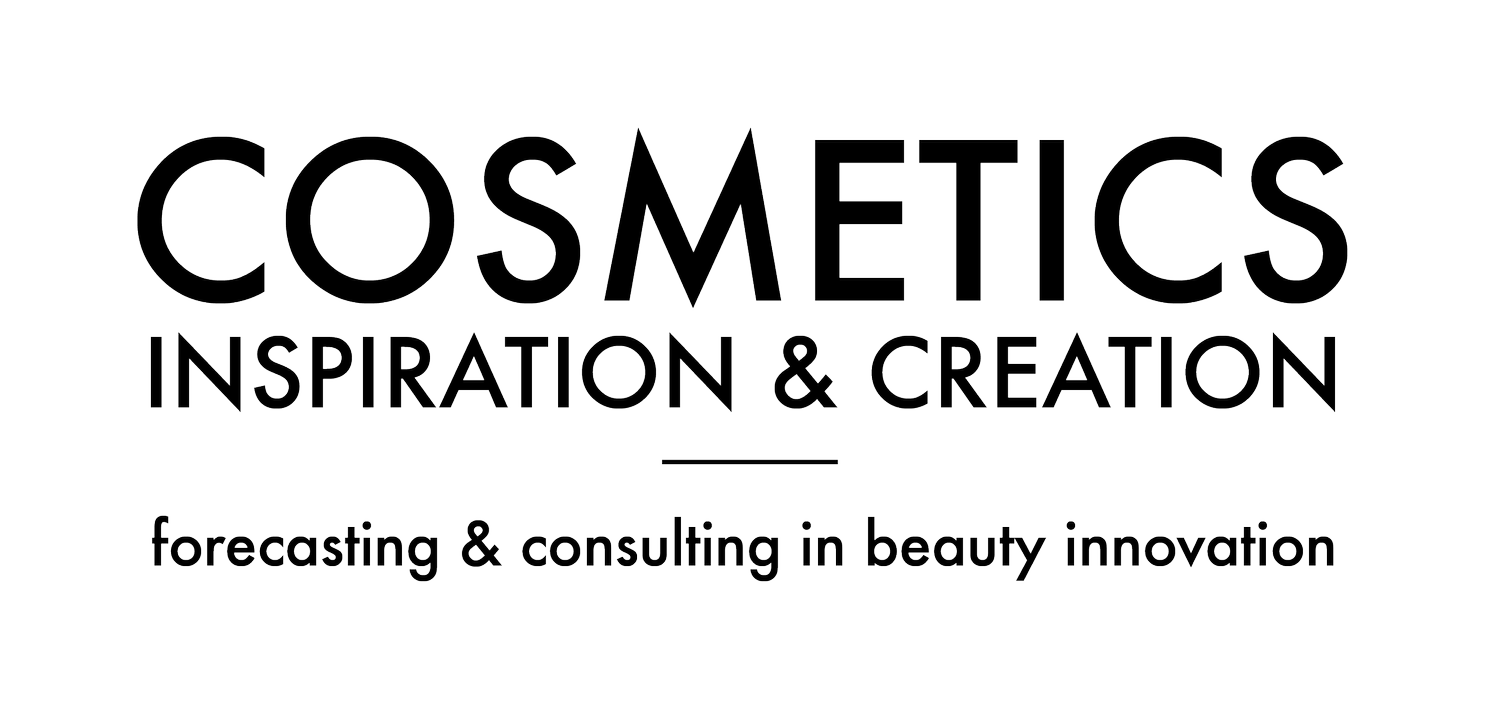Pic: Cosmetics Inspiration & Creation at the MakeUp in NewYork - with Leila Rochet (Cosmetics Inspiration & Creation), Sarah Jindal (Mintel) and Sebastien Bardon (Capsum)
At MakeUp in New York, key thought leaders Sarah Jindal from Mintel and Sebastian Bardon, CEO of Capsum, joined Leila Rochet to discuss the theme of Transcendent Nature, exploring the imperative to leverage visionary science and technology to realize a more holistic and environmentally responsible future for the beauty industry.
During this Beauty Talk, Leïla Rochet introduced the major changes and new initiatives seen internationally in ethical sourcing and sustainability. Sarah Jindal presented the latest analysis from Mintel’s consumer research, focusing on the latest international changes in the beauty market. The discussion continued with Sébastien Bardon, CEO and co-founder of Capsum, a science-driven contract manufacturer specializing in microfluidic technologies applied to Beauty.
“In the future, sustainability will be tackled with innovative ideas and partnerships across industries, leading to solutions that benefit both people and the environment. Responding to growing consumer pressure, eco-native brands will drive an industry-wide transformation, setting new standards in eco-desirable packaging and ambitious makeup innovations.”
Consumer expectations are rapidly reshaping the industry when it comes to clean beauty, driving brands to demonstrate a deep commitment to sustainability and ethics that goes beyond surface-level trends. Here are the key highlights from the conference:
A New Consumer Imperative
Consumers are demanding solutions that benefit both people and the planet, driving brands to prioritize investments in ethical sourcing and production. Products backed by data and experts will gain traction with savvy, but skeptical, consumers - 30% say they trust a brand if it has strong sustainability initiatives, according to Mintel.
“We know consumers want to live more eco-friendly lifestyles,” said Jindal, who highlighted a significant shift in consumer power, with one-third of U.S. adults now saying they are committed to sustainability. “A few years ago, people wouldn’t have believed their actions mattered, but now there’s optimism. Positive sentiment like this is powerful, as it fully engages people with brand initiatives, creating alignment between consumer behavior and brand messaging.”
This shift is encouraging cross-industry collaborations between eco-native brands and innovators working in science and technology, a dynamic that is integral to the Capsum lab, admitted Bardon. As a company built on experimentation, Capsum is investing in B2B companies that are leading the field in terms of ingredient, packaging, and device innovation - ensuring their team is fed a steady stream of insights and inspiration. “Sustainability is central to our work,” he explained. “The dual focus on product attraction and environmental promises is challenging but vital.” Critically, Capsum’s CEO noted that they are guided by their clients, noting that constant engagement is key to staying ahead of their demands.
Biotechnology: A Transformational Force
“In fashion, food and product design, we are seeing ambitious new developments in sustainable innovation with the emergence of novel materials and ingredients that radically reduce our reliance on non-renewables,” explained Leila Rochet, CIO of Cosmetics IC. The agency highlighted the emergence of biologically engineered textiles or materials used in other industries.
Biotechnology is becoming more than a tool; it is becoming the backbone of sustainable innovation. “Over the past three years, we’ve seen an 89% increase in products mentioning fermentation, a 312% increase in references to the biome, and a 146% increase in the use of terms like biotech or biotechnology on packaging,” revealed Jindal.
Brands increasingly call out these aspects on packs to educate consumers and differentiate their offerings. By focusing on lab-grown sustainability benefits and using science-led influencers, brands can help overcome consumer uncertainty and appeal to the 24% of U.S. consumers who would like to learn more about lab-grown ingredients.
Advancements in this field are enabling the development of sustainable, lab-grown ingredients that rival—and often exceed—the performance of traditional ones, like Capsum’s microencapsulated active ingredients that deliver both superior results and sustainability.
Full Transparency
The shift toward sustainability demands more than innovation in formulation; it extends to ethical practices across the supply chain. Over one-third of consumers (39%) aged 18-44 now want products to be ethically sourced.
Young consumers are driving this shift, many of whom don’t differentiate between what’s good for the environment and what’s good for people. For Jindal, it comes down to younger generations feeling they have more to lose, noting that “eco-ethical positioning, covering topics like biodiversity and responsible sourcing, resonates deeply with younger generations because they’re more invested in ensuring the planet remains inhabitable for a longer time.”
Capsum is investing in vertical farms to ringfence its ingredient sources, allowing scientists to grow plants with boosted potency while retaining water and avoiding the wastage typical in open fields. “This level of control ensures consistent quality and traceability, meeting growing consumer expectations,” explained Bardon.
THE CIC TAKE
The future of beauty lies in applying science and technology to transcend nature. This means exploring regenerative practices and sustainable ingredient sources that severe the industry’s reliance on non-renewables. Brands will only unlock a greener future by thinking beyond clean, and by democratizing efficacy and adding value to forge a powerful pact between science, technology and nature.
Our What’s Up #21 report (out now) explores consumers’ desire to reconnect with the grounding elements of nature, as we grapple with the impact of climate change. This calls for brands to invest in novel biotech materials, botanical-infused products, and medicine and wellness practices that harness nature’s therapeutic healing powers, bringing nature-powered innovation to the fore.
Contact the team today for more information.
(All statistics provided by Mintel)

